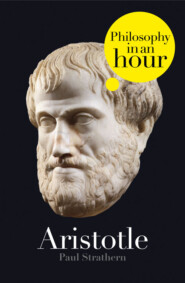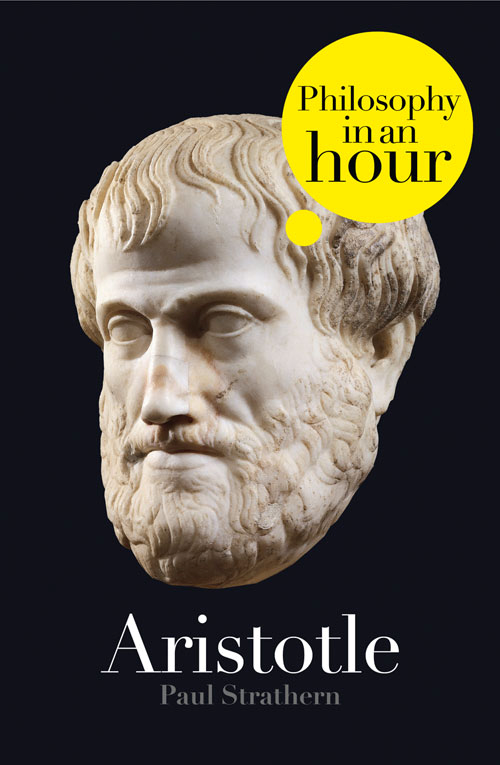
Полная версия:
Aristotle: Philosophy in an Hour


Aristotle
PHILOSOPHY IN AN HOUR
Paul Strathern

Contents
Cover
Title Page
Introduction
Aristotle’s Life and Works
Afterword
Further Information
From Aristotle’s Writings
Chronology of Significant Philosophical Dates
Chronology of Aristotle’s Life
Chronology of Aristotle’s Era
Recommended Reading
A Note on the Author
Copyright
About the Publisher
Introduction
Aristotle was perhaps the first and the greatest of all polymaths. He is known to have written on everything from the shape of seashells to sterility, from speculations on the nature of the soul to meteorology, poetry and art, and even the interpretation of dreams. He is said to have transformed every field of knowledge that he touched (apart from mathematics, where Plato and Platonic thought remained supreme). Above all, Aristotle is credited with the founding of logic.
When Aristotle first divided human knowledge into separate categories, this enabled our understanding of the world to develop in a systematic fashion. But in recent centuries our knowledge expanded to the point where it was being seriously hindered by this categorisation. Such systems of thought allowed knowledge to develop only along certain predetermined paths, many of which were in danger of petering out. A radically different approach was needed. The result is the modern world of science.
The fact that it took us over twenty centuries to discover these limitations in Aristotle’s thought only demonstrates his unparalleled originality. Yet even the demise of Aristotelian thought has given rise to many fascinating philosophical questions. How many more of these limitations have we yet to discover? How dangerous are these flaws in our way of thinking? And exactly what are they preventing us from learning?
Конец ознакомительного фрагмента.
Текст предоставлен ООО «ЛитРес».
Прочитайте эту книгу целиком, купив полную легальную версию на ЛитРес.
Безопасно оплатить книгу можно банковской картой Visa, MasterCard, Maestro, со счета мобильного телефона, с платежного терминала, в салоне МТС или Связной, через PayPal, WebMoney, Яндекс.Деньги, QIWI Кошелек, бонусными картами или другим удобным Вам способом.
Вы ознакомились с фрагментом книги.
Для бесплатного чтения открыта только часть текста.
Приобретайте полный текст книги у нашего партнера:
Полная версия книги
Всего 10 форматов



